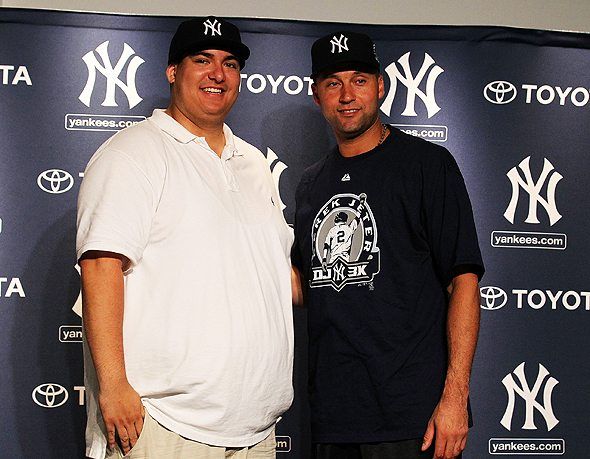No Good Deed Goes UnTaxed

Telling Tips is a series of articles from local experts to help you save money, make better decisions and plan for a better future.
Catch a falling star and put it in your pocket. Taxable?
Catch a baseball, and give it away. Taxable?
[Ed – Catch a great time at “Sheepshead Bites Night” at MCU Park, August 19. Awesome? You betcha! Sorry, we couldn’t resist.]
Derek Jeter, the New York Yankees shortstop, became the first Yankee, and the 28th major leaguer, to accomplish 3,000 career hits. On Saturday, July 9, he hit a solo home run to left field, and directly into the hands of Christian Lopez, a 23-year-old fan. (Lopez was there thanks to his girlfriend, who gave him the ticket as a birthday present.)
Souvenir baseballs are worth a lot of money, and Lopez quickly ended up in the office of the Yankees’ president. The question: what would he do with the ball?
If you remember, Barry Bonds’ 715th home run ball sold for $220,100, and Mark McGwire’s 70th home run ball sold for $3 million.
According to some experts, Jeter’s ball was worth $250,000. Mr. Lopez had a proper upbringing, but no agent. Mr. Lopez gave the ball back to Jeter.
But, he did not leave the president’s office empty-handed. According to reports, he received three Jeter autographed balls (about $600 each), three autographed bats (about $900 each), two autographed jerseys (about $1,000 each), four tickets to every remaining home game (for this season only), and for the next game, he received four front-row “Legends” seats (about $1,359 each).
And that’s not all — he might very well receive a bill from the IRS.
As you attend baseball games and you’re trying to catch a baseball, you might want to think about these questions before you bring it in:
- Will you have income to report on your tax return when you catch the ball, or when you sell it?
- If income has to be reported when you catch the ball, that is, this year, how do you determine its worth?
- Would this amount be a capital gain, and taxed at the lower and more favorable tax rates? And what is the cost of that ball — zero, or the admission price to the game, or the price of the season-tickets?
- Will you have income if you give the ball back to the hitter?
In 1998, before Roger Maris’ single-season record was broken by Mark McGwire, the IRS originally said that catching and giving back the ball might trigger a gift tax. Fans became enraged, and the IRS reversed its position.
Most probably, Mr. Lopez won’t owe any tax on the value of the ball. Will he owe tax on the ‘gifts’ the Yankees gave him?
What do you think? Should he owe any tax at all? And now that you have these tax questions to think about, will you still try to catch that ball?
Joseph Reisman, of Joseph S. Reisman & Associates, has been serving tax prep and business accounting expertise from his Coney Island Avenue office for more than 25 years. Check out the firm’s website.




